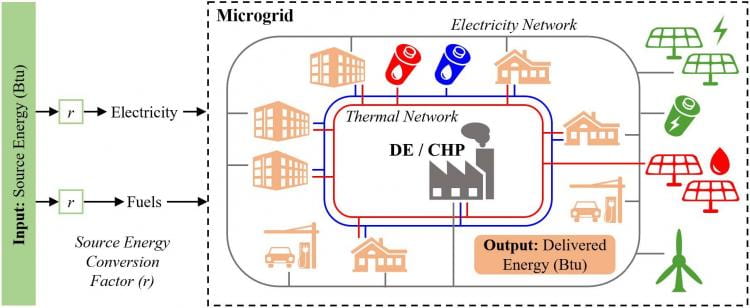
SBS lab has been working on the DOE Grid-Interactive Efficient District (GED) energy system project for 3 years. Team meetings have been conducted weekly via zoom, but today the team held their first in-person meeting in Boulder. They received an amazing tour of the University of Colorado Boulder’s Energy Plant by Ken Morse. It was a great experience to see the energy plant and actually meet with the team in-person after all these years! We look forward to our continued collaborations and research.
The GED project focuses on the coordination of thermal-electrical-control networks. Which is essential for the optimal design of grid-interactive efficient district (GED) energy systems, particularly when renewable energy sources are integrated. This joint research is to create a holistic open-source modeling and optimization platform for the optimal design and retrofit of GED energy systems. The project includes teams from Pennsylvania State University, University of Colorado Boulder, Rensselaer Polytechnic Institute, University of Texas Austin, Lawrence Berkeley National Lab, National Renewable Energy Lab, and Amzur Technologies.






